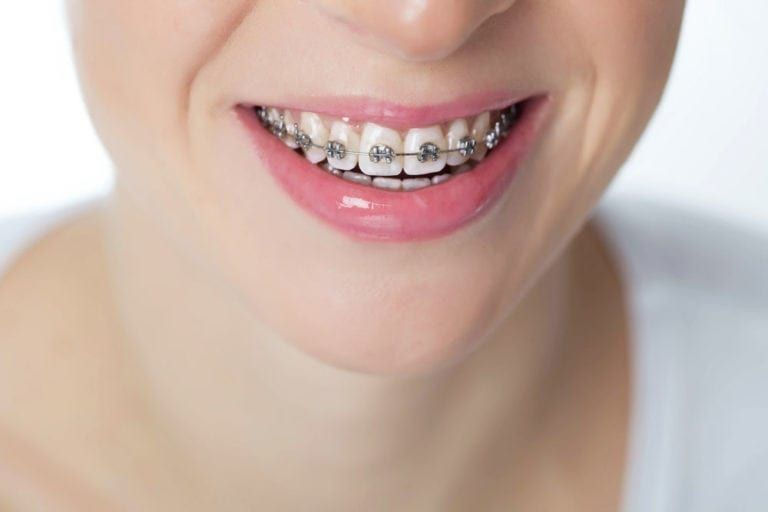Common Myths About Teeth Whitening You Should Stop Believing
- dclinicdubai
- Sep 5, 2025
- 4 min read
A bright smile is one of the most desired features, which is why treatments like teeth whitening in Dubai have gained immense popularity among professionals, brides, and anyone seeking a confidence boost. However, along with its rise in demand, many myths and misconceptions surround teeth whitening. These myths can mislead people into avoiding effective treatments or relying on unsafe alternatives. To make informed choices, it’s essential to separate facts from fiction and understand how whitening really works.

Myth 1: Teeth Whitening Damages Enamel:
One of the most widespread concerns is that whitening wears away the enamel. In reality, professionally administered treatments use safe peroxide-based solutions that only break down stain molecules without harming the tooth surface. Enamel remains structurally intact when whitening is done under the supervision of a dentist, making the treatment both safe and effective.
Myth 2: Over-the-Counter Products Work the Same as Professional Whitening:
Whitening toothpaste, strips, and gels may brighten teeth slightly, but they cannot match the strength of professional treatments. Dental-grade whitening solutions penetrate deeper into enamel and dentin, delivering long-lasting results in a fraction of the time. Professional whitening also ensures even coverage and minimizes risks like sensitivity or gum irritation.
Myth 3: Whitening Works on All Types of Stains:
Whitening treatments are effective for most extrinsic stains caused by food, drinks, or smoking. However, intrinsic discoloration, such as those caused by trauma, medications, or developmental conditions, may not respond well. In such cases, dentists recommend alternatives like veneers or bonding for effective results.
Myth 4: Results Last Forever:
Another common belief is that whitening is permanent. In truth, results typically last between six months and two years, depending on lifestyle choices. Habits such as smoking, drinking coffee, tea, or wine can cause stains to reappear sooner. Regular touch-ups and good oral hygiene are necessary to maintain a brighter smile.
Myth 5: Whitening Causes Extreme Sensitivity:
Some people avoid whitening out of fear that it will cause unbearable sensitivity. While mild sensitivity is common after treatment, it is temporary and usually subsides within a few days. Dentists also use desensitizing gels or recommend fluoride products to make the process more comfortable. Advances in whitening technology now make treatments safer for sensitive teeth.
Myth 6: Natural Remedies Are Just as Effective:
Home remedies such as lemon juice, baking soda, or charcoal toothpaste are often promoted online. However, these can be abrasive or acidic, leading to enamel erosion and gum irritation. Unlike professional whitening agents, natural remedies lack the scientific backing to deliver safe or effective results. Dentists strongly advise against using such methods.
Myth 7: Whitening Is Only for Young People:
There is a misconception that whitening is suitable only for younger patients. In reality, people of all ages can benefit, provided their teeth and gums are healthy. In fact, whitening is often more impactful for older adults because teeth naturally darken with age, making the improvement highly noticeable.
Myth 8: Whitening Makes Teeth Look Fake:
Some fear that whitening treatments will result in unnaturally white or artificial-looking teeth. Professional whitening is designed to achieve a natural brightness that complements skin tone and facial features. Dentists carefully monitor results to ensure the smile looks enhanced but not exaggerated, avoiding the “fake” look.
Myth 9: Whitening Weakens Teeth Over Time:
Many people believe that repeated whitening will thin or weaken enamel. In truth, when done correctly under professional supervision, whitening does not harm tooth structure. Dentists follow strict guidelines regarding frequency and concentration to ensure long-term dental health while maintaining cosmetic results.
Myth 10: Whitening Works on Restorations:
Crowns, veneers, and fillings do not respond to whitening agents because they are made from synthetic materials. Whitening only affects natural tooth enamel. This means if you have visible restorations, they may appear darker compared to whitened natural teeth. Dentists often discuss options to replace or match restorations for a uniform smile.
Myth 11: One Treatment Is Enough for Everyone:
Teeth whitening is not a one-size-fits-all procedure. Factors like the type of stains, initial tooth color, and patient expectations all influence outcomes. Some people may achieve their desired results in one session, while others may require multiple treatments or additional maintenance over time.
Myth 12: DIY Whitening Kits Are Completely Safe:
Online and store-bought whitening kits promise quick results, but without professional supervision, they can cause harm. Incorrect usage, overly frequent application, or poor-quality chemicals can lead to gum irritation, uneven whitening, or enamel damage. Consulting a dentist ensures a safe and customized approach.
Myth 13: Whitening Can Replace Good Oral Hygiene:
Whitening enhances appearance, but it does not substitute brushing, flossing, and professional cleaning. Poor oral hygiene can quickly reverse results and cause deeper dental issues. For lasting benefits, whitening should be combined with a consistent oral care routine.
The Role of Professional Guidance:
Debunking these myths highlights the importance of seeking expert advice before whitening. Dentists evaluate tooth health, discuss realistic outcomes, and recommend the best approach for each patient. Professional care ensures the treatment is not only effective but also safe, preventing potential risks that come with misinformation or DIY methods.
Final Thoughts:
Teeth whitening remains one of the most popular cosmetic dental treatments worldwide, and understanding the truth behind the myths is essential for making informed decisions. By trusting professional care, patients can enjoy safe, effective, and long-lasting results. With advanced techniques available, teeth whitening in Dubai continues to be a reliable way to achieve a confident, radiant smile without the risks associated with common misconceptions.


Comments